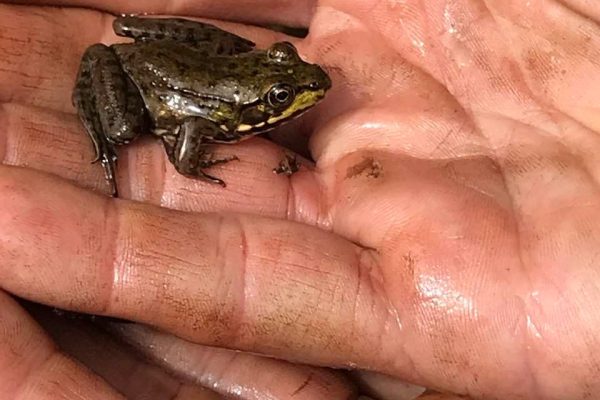To be read upon opening the door for Elijah.
Tonight we reflect on Eliyahu HaNavi, Elijah the Prophet. Tonight we dream of Elijah visiting our seder; not to eat — but to serve as the precursor to the Messiah.
On Pesakh, we pray for the Messianic Age — a time when humanity will live in shalom, peace, that is not only physical, but also spiritual. We seek peace that is not only external, but spiritual as well.
Thousands of years ago, Elijah was in crisis. He was tormented by unfulfilled dreams and dashed expectations. Jezebel, wife of King Ahab, threatened him with death and Elijah saw no future for himself. He was alone and lonely. He was in despair. And he cried to God, “I have had enough — let me die! I have dreams, goals and values that I will never achieve. What reason is there for me to live?”
Although God often speaks to humanity in the rumble of earthquakes, the roaring of wind, and the thunder of storms, God spoke to Elijah, instead, in a still small voice. And it was the nurturing power of the still small voice that slowly gave Elijah the courage and strength to be able to peek out of his deep abyss.
On this night when we welcome Elijah to join our celebration, we acknowledge those who are so pained that they cannot fully celebrate, for joy eludes them. Although we may witness their physical wound with our eyes, we must also find ways to become attuned to their spiritual hurt and their emotional despair. The blood from the wound in their heart may not be visible and the cry in the depth of their throat may not be audible unless we train ourselves to attend to them. But they are there. Our challenge is see and hear the pain of those whose depression affects their lives.
Our response does not have to be bold in order to make a difference. A still small voice can transform a frown into a smile. A caring whisper that says, “I care” can raise a stooped head. A tender embrace can provide salve to a soul racked with pain.
Today the number of suicides in North America is larger than the number of deaths resulting from automobile accidents. There are twice as many deaths resulting from suicide than homicide. But it doesn’t have to be that way. You can help by being the still small voice that says, “I’m here to listen.” “I’m here to sit with you.” “You are important to me.” “I care about you.”
A still small voice may have saved Elijah’s life. Your still, small voice may save the life of someone you know.
Elijah’s Journey was founded by Efrem Epstein in 2009 to create a Jewish Voice within the greater national suicide awareness effort. You can donate to Elijah’s Journey at razoo.com/story/Elijahs-Journey.
We are planning to prepare additional educational and study materials in the months ahead. We hope that you will take the message of caring and hope which is found in this passage and use it as an opportunity to discuss suicide awareness in your communities.
If you or anyone you know is in need of help, call 911, or 1-800 273 8255.
www. ElijahsJourney.net • ElijahsJourney.@gmail.com











